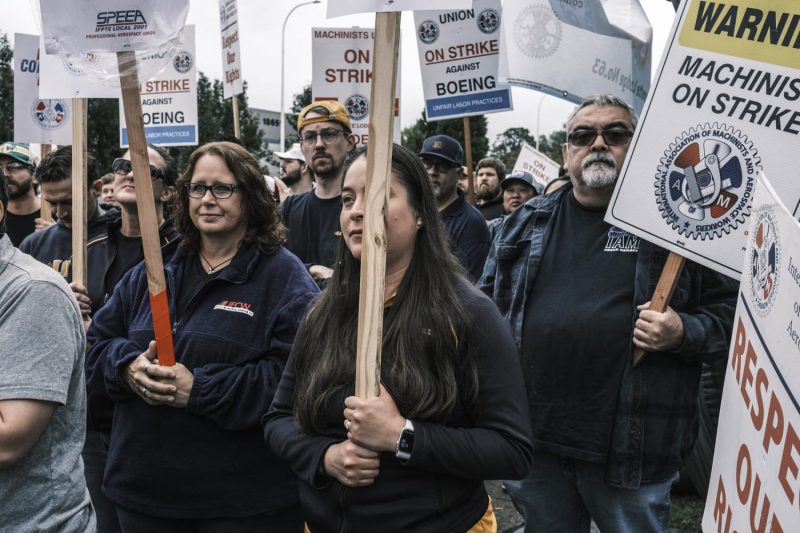
Boeing Slashes 17,000 Jobs Amid Factory Strike and Deepening Losses
Boeing to Cut 17,000 Jobs as Losses Deepen During Factory Strike
Boeing recently announced its decision to cut approximately 17,000 jobs as the aerospace company faces deepening financial losses amidst an ongoing factory strike. The impact of the strike has taken a toll on Boeing’s production capacity and bottom line, leading to the significant workforce reduction.
The job cuts will not only have a direct impact on employees but also on the broader economy and the aviation industry as a whole. The reduction in workforce is expected to result in operational challenges for Boeing, potentially affecting its ability to meet market demands and deliver on existing orders.
The factory strike has exacerbated Boeing’s financial woes, forcing the company to take drastic measures to remain competitive and stabilize its operations. The prolonged strike has disrupted production schedules and caused delays in fulfilling customer orders, further straining Boeing’s financial position.
In addition to the job cuts, Boeing is also exploring other cost-cutting measures to mitigate the impact of the factory strike and improve its financial outlook. These measures may include restructuring initiatives, renegotiating supplier contracts, and scaling back on non-essential expenditures to streamline operations and preserve cash flow.
The workforce reduction at Boeing highlights the broader challenges facing the aviation industry as it navigates the effects of the global pandemic, supply chain disruptions, and labor disputes. Companies like Boeing are under pressure to respond swiftly and decisively to market uncertainties and operational disruptions to ensure their long-term viability and competitiveness.
The job cuts at Boeing serve as a stark reminder of the complex interplay between labor relations, market forces, and financial performance in the aerospace sector. As the company grapples with the aftermath of the factory strike and implements cost-cutting measures, the aviation industry will be closely watching how Boeing manages its workforce transition and navigates the challenges ahead.
In conclusion, Boeing’s decision to cut 17,000 jobs reflects the harsh realities facing the aerospace industry and underscores the urgent need for companies to adapt to changing market conditions and operational challenges. The fallout from the factory strike serves as a cautionary tale for companies across the aviation sector, emphasizing the importance of strategic planning, effective risk management, and proactive decision-making to weather turbulent times and secure long-term success.
